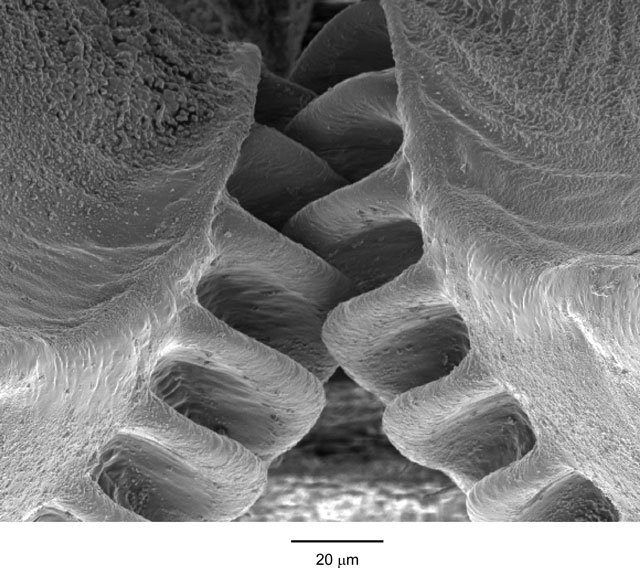Selection after something exists is not the same as selection before something exists, except in confused, illogical thinking of Darwinists. This is the heart of the problem that Behe’s Irreducible Complexity poses for Darwinism.
I once offered a Darwinist $100 if he could figure out the 40 letter password I’d written on a piece of paper and filed away. Even though it would have increased his survival advantage to figure out the password, did he figure it out? No. Did he write and evolutionary algorithm to figure it out? No. There was no free lunch for him. 🙂
The point of this exercise was to show that even though finding a solution to a problem gives one advantage, it does not mean one will necessarily find the solution! It does not mean that there necessarily exists a series of selectively favorable incremental improvements that lead to a complex solution like a password, or say a pair of interlocking gears in an insect:

Yet such Darwinist non-sequiturs permeate evolutionary literature — “this feature evolved because it confers survival advantage”. Joe Felsenstein even used such a non-sequitur. He claims sexual reproduction evolved in order to prevent things like Muller’s ratchet. Richard Dawkins and Simon Conway Morris suggest convergence on similar solutions (like eyes and wings) evolve in order that creaters can see and fly. Those are all non-sequiturs for mindless processes that care nothing if a creature lives or dies.
Suppose we genetically engineered rats without functioning lungs, do we expect them to live? We might conclude, “wow, rats without functioning lungs don’t live therefore lungs are strongly selected for!” Well yeah, lungs are selected for after the lungs already exist, it says nothing about whether functioning lungs are strongly selected for before they exist. In fact for certain vital organs, selection for a vital organ before that vital organ exists might well be absent since the creature would be dead without it! End of story.
NOTES:
1. This is an attempt to state in more succinct and simpler term what was laid out in:
The blind watchbreaker would dispose of lunches even if they were free
and
Selection is falsely called a mechanism when instead it should be labeled an outcome
2. Photo credits: First gear discovered
3. Essay written in the spirit of Mark Frank’s encouragement toward succinctness.